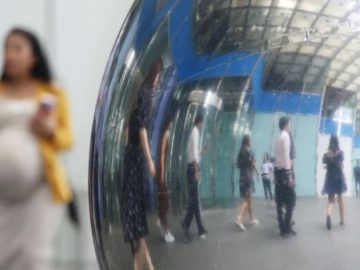Source: Anrita / Pixabay
Researchers readily acknowledge that the concept of work-life balance has been elusive to define and often even more elusive to achieve. “Work” encompasses a wide range of experiences, and “life” is even broader to encapsulate, which has made the construct of work-life balance very difficult to scientifically examine and measure. Unfortunately, these challenges have largely resulted in studies that have limited value not only for the advancement of the construct but also more importantly for offering scientifically validated and practical solutions to the public (Guest, 2002; Kalliath & Brough, 2008; Kelliher et al., 2019).
Historically, recommendations have included a variety of “work less and live more” strategies. However, these strategies rarely work. Work-life balance, like most complicated and multifaceted human experiences, isn’t a math equation or a programming code. There is no one-size-fits-all formula. Yet, because we’ve heard for decades that work-life balance is achievable and here’s the simple formula for how you do it, unsuccessful attempts to attain it often result in increased anxiety, depression, guilt, and the ultimate imbalance, burnout (Sprung & Rogers, 2020).
If this is the situation you find yourself in, it doesn’t mean that you’re a failure, or weak, or not trying hard enough. It simply means that the premises you’ve been working under are probably faulty, and if you want to accomplish the goal, you’ll need to reframe your thinking and adjust your approach.
Check Your Premises
- Fallacy #1: Work and life are antagonistic. The term balance implies that work and life are distinct and opposing entities, so we need to figure out a way to equally balance them. A more realistic and manageable view is that work and life are inextricably interconnected, existing as a broad base of entities with permeable borders that we manage and move through as we need and want to on a daily basis (Clark, 2000; Guest, 2002).
- Fallacy #2: Balance is a one-size-fits-all experience. What makes you feel content with your life and work is unique to you; therefore, what makes you feel balanced is something you have to contemplate and discover for yourself based on your own life and work circumstances. While it’s normal for family and friends to have their own views about what you “should do” to feel more balanced or offer opinions as to what “balances” them, their life circumstances are not yours. And although there will always be objective variables (e.g., hours of work; assumed social and family roles) that have to be factored into your self-analysis of balance, subjective perceptions are essential to this analysis (Guest, 2002).
- Fallacy #3: Balance is a one-and-done. Those who have felt fulfilled both professionally and personally at one point in their life are often confused when that sense of balance seems to inexplicably disappear. However, it’s not inexplicable. As you age and grow and your life circumstances change, it’s natural that what makes you feel fulfilled is going to change as well. Growth requires change, and you have to recognize and be willing to make those changes to maintain or reestablish your sense of balance.
- Fallacy #4: Balance is a destination. Balance isn’t a place we eventually arrive at and stay; it’s a life-long journey. Each day, we face new or evolving situations in our lives, and each ebb and flow requires micro or macro adaptations to produce and sustain a sense of balance (Peiris et al., 2021). Some days, more time may have to be dedicated to work; other days, home or family requires more attention. Approaching balance as a flexible and fluid construct that you can pay forward or pay back can make it feel less elusive. For example, if work causes you to miss movie night with the family, commit to three hours of undivided family attention the next night without taking calls or checking texts, emails, or voice messages.
- Fallacy #5: Work is the culprit. Although our lives outside of work are often more consuming than our work, when we begin to feel off balance, work typically gets the blame. The problem, however, isn’t work. It’s how we choose to conceptualize and incorporate work into our lives. A recent study of physicians found that one of the keys to successful balancing, particularly in a highly demanding and emotionally consuming work environment, is to recognize that work and life are intertwined in both positive and challenging ways, and success requires active and ongoing maneuvering between those worlds to create the life that brings you as much satisfaction and removes as much stress as possible (Győrffy et al., 2023).





